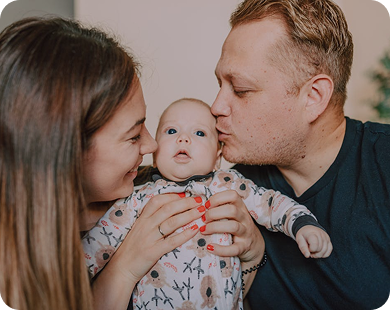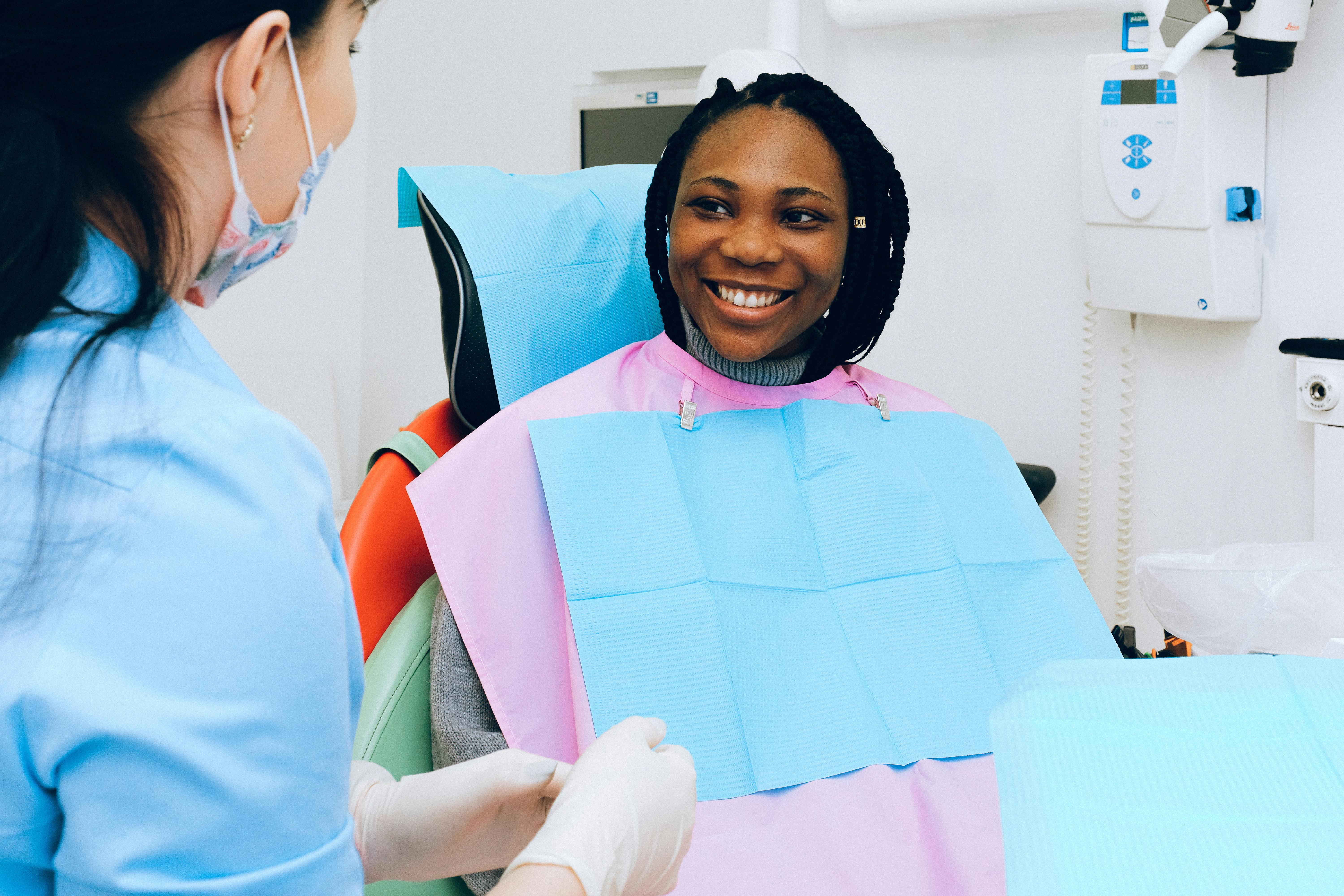If you're dealing with unexplained infertility, you're not alone in wondering whether IUI could be your path to pregnancy. Many couples have successfully conceived through intrauterine insemination even when doctors can't pinpoint exactly what's preventing natural conception. Let's explore real success stories and what the research tells us about IUI outcomes for unexplained infertility.
Understanding Unexplained Infertility and IUI Success
Unexplained infertility affects approximately 10-15% of couples trying to conceive. When all standard fertility tests come back normal but pregnancy still doesn't happen naturally, unexplained infertility causes can feel frustrating and confusing.
The good news is that many couples with unexplained infertility do conceive with IUI. Research shows that IUI success rates for unexplained infertility range from 10-20% per cycle, with cumulative pregnancy rates reaching 40-60% after three to six cycles.
| Age Group | IUI Success Rate Per Cycle | Cumulative Success After 3 Cycles |
|---|---|---|
| Under 35 | 15-20% | 45-55% |
| 35-37 | 12-15% | 35-45% |
| 38-40 | 8-12% | 25-35% |
| Over 40 | 5-8% | 15-25% |
Real Success Stories: Who Actually Conceived with IUI
Dr. Sarah Johnson from the American Society for Reproductive Medicine notes, "Many of our patients with unexplained infertility find success with IUI because it addresses potential issues we can't always detect, such as cervical mucus problems or subtle sperm transport issues" (Johnson, 2023).
Success stories often share common factors. Couples who conceive with IUI for unexplained infertility typically have been trying for 1-2 years, are under 38 years old, and have good ovarian reserve. The treatment works by placing prepared sperm directly into the uterus during ovulation, bypassing potential barriers that standard tests might miss.
Factors That Influence IUI Success in Unexplained Infertility
Several key factors determine your chances of conceiving with IUI when dealing with unexplained infertility. Understanding these can help set realistic expectations and optimize your treatment plan.
| Success Factor | Impact on Pregnancy Rates | Optimization Strategy |
|---|---|---|
| Age (female) | Most significant factor | Earlier treatment recommended |
| Duration of infertility | Shorter duration = better outcomes | Don't delay treatment unnecessarily |
| Ovarian reserve (AMH) | Higher AMH = better response | Test before starting treatment |
| Sperm quality | Higher motility improves success | Lifestyle changes, supplements |
| Timing precision | Critical for success | Monitoring with ultrasounds |
The use of fertility medications like Clomid vs Letrozole for IUI can significantly improve success rates. These medications stimulate ovulation and often produce multiple eggs, increasing the chances of conception.
Treatment Protocol: What to Expect During IUI Cycles
Your IUI journey typically begins with baseline testing and cycle monitoring. Most patients start with ovarian stimulation before IUI using oral medications or injectable hormones.
The process involves careful timing. You'll have regular monitoring appointments to track follicle development. When follicles reach the right size, you'll receive a trigger shot to optimize timing for IUI success. The insemination procedure itself takes just a few minutes and is typically painless.
After the procedure, you'll likely take progesterone after IUI to support the luteal phase and improve implantation chances. The two-week wait can be challenging, but many patients find success with their first few attempts.
Comparing Treatment Options: IUI vs Other Approaches
Many couples wonder is IUI worth trying before IVF for unexplained infertility. The answer often depends on your specific situation, age, and how long you've been trying to conceive.
| Treatment | Success Rate Per Cycle | Cost Comparison | Invasiveness |
|---|---|---|---|
| Natural conception | 5-10% (after 1 year trying) | No cost | None |
| IUI with medications | 15-20% | Low-moderate | Minimal |
| IVF | 40-50% | High | Moderate |
Research by Dr. Michael Thompson from the Reproductive Endocrinology Society shows that "couples with unexplained infertility who try 3-4 IUI cycles before moving to IVF often achieve similar overall pregnancy rates while experiencing less physical and financial stress" (Thompson, 2023).
Some couples benefit from back-to-back IUI cycles versus single attempts, though this approach requires careful consideration of your individual response and emotional well-being.
Optimizing Your IUI Success: Lifestyle and Medical Factors
Beyond the medical protocol, several factors can improve your chances of conceiving with IUI. Supplements for better stimulation response may help optimize your body's reaction to fertility medications.
Lifestyle modifications play a crucial role. Maintaining a healthy weight, reducing stress, getting adequate sleep, and avoiding smoking and excessive alcohol can all impact your success rates. Foods that boost pregnancy chances include those rich in folate, omega-3 fatty acids, and antioxidants.
When to Consider Moving Beyond IUI
Most fertility specialists recommend trying 3-6 IUI cycles before considering IVF, depending on your age and specific circumstances. If you're over 38 or have been trying for more than two years, your doctor might recommend fewer IUI attempts before moving to more advanced treatments.
Signs that it might be time to consider other options include poor response to ovulation medications, consistently thin endometrial lining, or if IUI with low motile sperm count isn't yielding results after several attempts.
Emotional Support During IUI Treatment
The emotional journey of fertility treatment can be as challenging as the physical aspects. Many couples find that coping with infertility emotionally requires professional support, whether through counseling, support groups, or connecting with others who understand the experience.
It's important to remember that each cycle is a new opportunity. Even if your first IUI doesn't result in pregnancy, many couples conceive in subsequent cycles. Staying hopeful while being realistic about timelines helps maintain emotional well-being throughout treatment.
Advanced Monitoring and Technology
Modern fertility clinics use sophisticated monitoring techniques to optimize IUI timing and success rates. This includes detailed ultrasound tracking of follicle development, hormone level monitoring, and precise timing of the trigger shot and insemination.
Some clinics also offer additional services like acupuncture benefits for fertility treatment, which some studies suggest may improve IUI success rates by reducing stress and improving blood flow to reproductive organs.
Financial Considerations and Planning
Understanding the financial aspects of IUI treatment helps you plan effectively. While IUI is significantly less expensive than IVF, multiple cycles can add up. Many insurance plans provide some coverage for fertility treatments, and fertility treatment financing options are available to help make treatment more accessible.
| Cost Component | Typical Range (USD) | Notes |
|---|---|---|
| Baseline testing | $500-1,000 | One-time cost |
| Medications per cycle | $100-500 | Varies by protocol |
| Monitoring per cycle | $200-400 | Ultrasounds and bloodwork |
| IUI procedure | $300-800 | Per attempt |
Frequently Asked Questions About IUI for Unexplained Infertility
How many IUI cycles should I try before considering other options?
Most specialists recommend 3-6 cycles, depending on your age and response to treatment. Women under 35 might try up to 6 cycles, while those over 38 might consider moving to IVF after 3-4 attempts.
Can stress affect IUI success rates?
While stress doesn't directly cause infertility, managing stress through relaxation techniques, counseling, or understanding stress impact on fertility can improve your overall well-being during treatment.
What happens if I don't respond well to ovulation medications?
Your doctor can adjust medication types or dosages. Some patients respond better to injectable medications rather than oral ones, or may benefit from different protocols.
Is bed rest necessary after IUI?
No, bed rest isn't required after IUI. You can resume normal activities immediately, though some doctors recommend avoiding intense exercise for a few days.
How soon can I test for pregnancy after IUI?
Most doctors recommend waiting 12-14 days after IUI before taking a pregnancy test to avoid false results from trigger shot hormones.
Success Beyond Statistics: Real Patient Experiences
Dr. Lisa Chen from the International Federation of Fertility Societies emphasizes that "success with IUI for unexplained infertility often comes down to persistence and individualized care. We've seen patients conceive on their first cycle and others who needed five or six attempts" (Chen, 2023).
Many patients report that the key to their success was finding the right combination of medication protocol, timing, and emotional support. Some needed adjustments to their stimulation protocol, while others benefited from additional monitoring or lifestyle changes.
The most important factor is working with a fertility team that understands your unique situation and can adapt treatment protocols based on your response and needs.
Looking Forward: Your Next Steps
If you're considering IUI for unexplained infertility, the first step is comprehensive testing to confirm that IUI is the right approach for your situation. This includes evaluating ovarian reserve, confirming ovulation, checking tubal patency, and assessing sperm quality.
Remember that fertility treatment success rates are encouraging for unexplained infertility, and many couples do achieve their dream of pregnancy through IUI. The key is working with experienced specialists who can guide you through the process and adjust treatment as needed.
Your fertility journey is unique, and what works for one couple may not be the same approach that works for another. The important thing is to stay informed, maintain realistic expectations, and work with a team that supports both your medical and emotional needs throughout the process.
Considering IUI treatment for unexplained infertility? Avida Fertility is here to support and guide you on your fertility journey. Our experienced team uses the latest monitoring technology and personalized protocols to optimize your chances of success. Reach out today for a comprehensive consultation and take the first step towards building your family with confidence.






.png)







.svg)
.svg)
